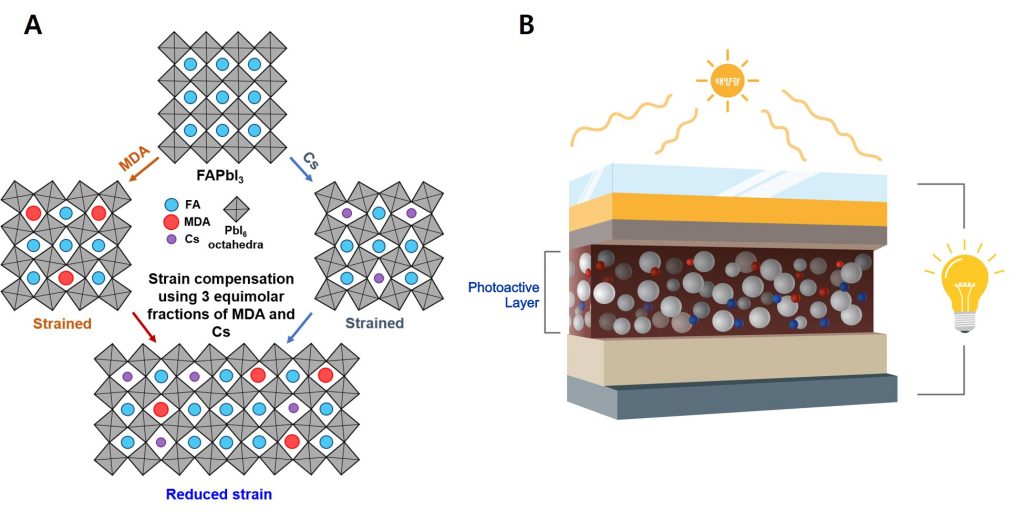Researchers at South Korea’s Ulsan National Institute of Science and Technology (UNIST) claim to have achieved a conversion efficiency of 25.17% in a perovskite solar cell by minimizing the deformation for the microstructure of photoactive layers in the device.
The scientists explained that the microstructure of these layers, which generate an electric charge and send it to electrodes, can be deformed, which affects the efficiency of the charge transfer itself. “This is because the extracted electric charges disappear when defects are formed,” they explained.
They claim to have succeeded in minimizing the internal defects of the photoactive layers by changing the type and ratio of ions embedded in the layers. These changes were responsible for increasing the solar cell's open-circuit voltage, “Encapsulated devices retained 90% of their initial efficiency after 400 hours of maximal power point operating conditions,” the researchers stated, adding that the certified efficiency of the device is 24.4%.
The Korean team also explained that the cell maintained over 80% of its initial efficiency after 1,300 hours in the dark at 85 degrees Celsius.
The process to prevent the deformation of the photoactive layers is described in the paper Impact of strain relaxation on performance of α-formamidinium lead iodide perovskite solar cells, published in Science.
In 2017, another research team from UNIST unveiled a method for the production of inorganic-organic perovskite solar cells, which has achieved record efficiency levels of 22.1% in small cells and 19.7% in cells measuring 1cm2. These efficiencies have been officially confirmed by the U.S. National Renewable Energy Laboratory.
This content is protected by copyright and may not be reused. If you want to cooperate with us and would like to reuse some of our content, please contact: editors@pv-magazine.com.




1 comment
By submitting this form you agree to pv magazine using your data for the purposes of publishing your comment.
Your personal data will only be disclosed or otherwise transmitted to third parties for the purposes of spam filtering or if this is necessary for technical maintenance of the website. Any other transfer to third parties will not take place unless this is justified on the basis of applicable data protection regulations or if pv magazine is legally obliged to do so.
You may revoke this consent at any time with effect for the future, in which case your personal data will be deleted immediately. Otherwise, your data will be deleted if pv magazine has processed your request or the purpose of data storage is fulfilled.
Further information on data privacy can be found in our Data Protection Policy.